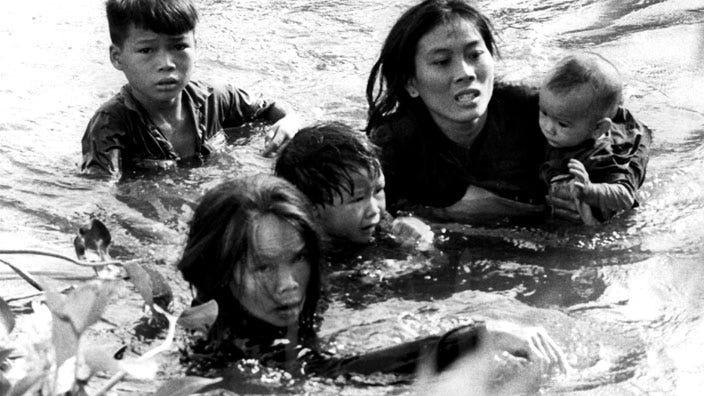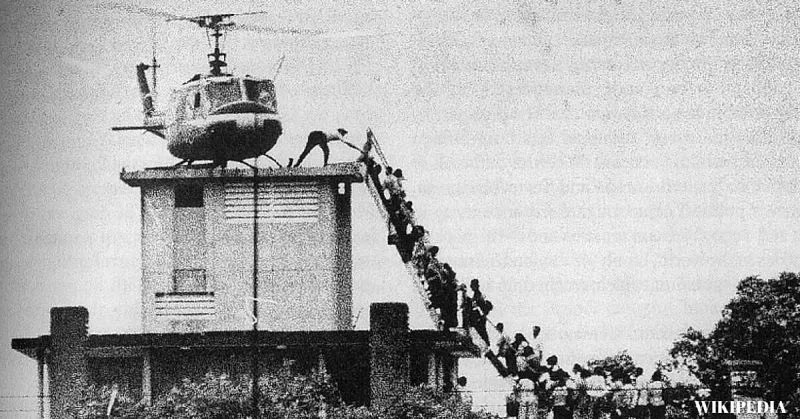We must remember not just South Vietnam’s fall, but why it fell.
Fifty years ago, April 30, 1975, the world watched in horror and disbelief as the last American helicopter lifted off from the rooftop of our embassy in Saigon. South Vietnam had fallen in the manner of Ernest Hemingway, “first gradually, then suddenly”: a decades-long war, a relative peace, and then a mad dash by the North Vietnamese Army that consumed the country in less than a month.
The tragedy was simply breathtaking. And horribly, horribly unnecessary.
What followed was not peace, but darkness. The swift collapse of South Vietnam, Cambodia, and Laos (turns out the Domino Theory was true) brought the subjugation of millions, and the opening act of a Communist bloodbath across Southeast Asia. At least a million were sent to the “re-education camps” in Vietnam alone. Half a million were murdered. Another two million fled this brutal night by sea, on rafts wholly unsuited for the tumultuous ocean, in wild hope that an American aircraft carrier might happen upon them. Close to half a million died in the water.
I remember standing before one of the refugees, one of the countless “boat people” who was resettled to Fort Smith, Arkansas. He was a slight, middle-aged man, with thinning hair and humble dignity. We were in the fellowship hall of my church. I was eight years old. And I remember looking up at the South Vietnamese flag on his lapel and just weeping, and saying over and over “I’m sorry, I’m just so sorry.”
We should all be so sorry.

The “boat people” and their children, awash in the South China Sea.
None of that counts the genocide of Pol Pot — whom the American left had dubbed “the George Washington of Cambodia”. Over the next three years he murdered between a quarter and a third of his entire population. He would have gone right on had not even the Communists in Moscow and Hanoi been horrified (though Beijing gave him their unqualified support both before and after the massacre).
None of this had to happen. This was not the end of a war, but the culmination of betrayal — a betrayal of an ally, of a cause, and of the very principles America had defended with precious blood and treasure for eight long years.
The received wisdom is that Vietnam was a mistake, a misguided war fought in the wrong place at the wrong time. That narrative is false. The Vietnam War was part of a noble, epic struggle — the same struggle that won the Cold War and saved the whole world from a similar fate. It was a just effort to stop Communist totalitarianism and genocide from consuming yet another corner of the globe. South Vietnam was not a hopeless case. It was a fledgling republic, striving to build a free society in the shadow of Marxist tyranny and under constant assault from within and without. Its people fought with courage and resolve for more than two decades, first with our help and then — fatally — with almost none.
In many ways, the fall of Vietnam mirrored the loss of China in 1949: a long American effort thrown away at the very last through perfidy in Washington — begun and betrayed by Democrats in both cases — with ghastly, ongoing consequences. The two were even similar in this: a Christian President of China (Chiang Kai-shek) betrayed by Truman, a Christian President of South Vietnam (Ngo Dinh Diem) assassinated on orders from JFK, after both of which came the deluge.
Read more at The Rod Martin Report >>

